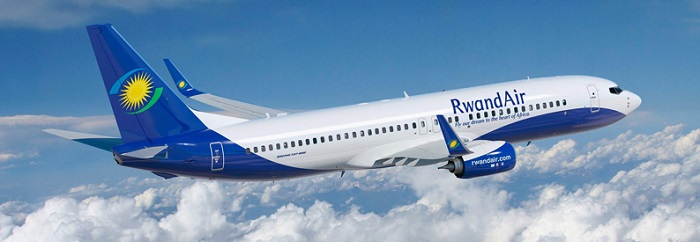RwandAir, Rwanda’s national carrier, has announced a major strategic shift in its operations by suspending several routes in West Africa and expanding services to key East African tourist destinations Mombasa in Kenya and Zanzibar in Tanzania. The airline’s decision, effective from late March 2025, marks a significant realignment of its route network to enhance profitability, improve operational efficiency, and focus on fast-growing regional markets.
The suspended routes include flights to Accra (Ghana), Abuja (Nigeria), Brazzaville (Republic of Congo), and Libreville (Gabon). These cities had been part of RwandAir’s West Africa operations for several years, but a combination of political challenges, rising costs, and weak demand have made them less viable. One of the primary operational challenges influencing this decision was the closure of the Democratic Republic of Congo’s (DRC) airspace to Rwandan-registered aircraft. This restriction rooted in ongoing diplomatic tensions between Rwanda and the DRC forced the airline to take longer, more expensive flight paths to reach key West African destinations, affecting both costs and efficiency.
In response, RwandAir has opted to reposition its network to cater to East Africa’s thriving tourism sector. The airline will now focus on launching direct routes to Mombasa and Zanzibar two of the most sought-after vacation destinations in the region, known for their beautiful coastlines, vibrant culture, and growing appeal to both domestic and international travelers. These new routes will be launched in the coming months, with flight schedules expected to be announced soon. By adding these connections, RwandAir aims to boost regional tourism and offer more travel options for leisure passengers connecting through its Kigali hub.
Speaking on the new development, RwandAir CEO Yvonne Makolo emphasized the importance of strategic flexibility. “We are looking at opening new routes. Mombasa and Zanzibar are high on the list because of their strong appeal and traffic potential,” she said. “This is part of our shift to maximize operational efficiency while providing more travel options to our passengers.”
The move also aligns with Rwanda’s national development strategy, which includes positioning Kigali as a key aviation and business hub in the region. With the future opening of the Bugesera International Airport and continued investments in tourism infrastructure, Rwanda is looking to attract more tourists and investors. RwandAir, as a state-owned airline, plays a critical role in this vision by offering reliable connections between Rwanda and the rest of the continent.
Despite the setback in West Africa, the airline has been making strides in its recovery following the COVID-19 pandemic. It has improved its load factors and passenger traffic, supported in part by its codeshare agreement with Qatar Airways and an expanding presence in regional markets. The new Mombasa and Zanzibar routes are expected to further strengthen its position, particularly among leisure travelers and tour operators looking for convenient intra-African travel options.
Industry experts see RwandAir’s pivot as part of a broader trend among African airlines to focus on regional and domestic routes that offer more consistent returns. West Africa’s aviation market has long been challenged by regulatory hurdles, inconsistent demand, and political instability, making it difficult for carriers like RwandAir to maintain sustainable operations.
In contrast, East Africa’s tourism industry has shown strong signs of recovery, with increased international arrivals, improved infrastructure, and rising demand for holiday destinations. By tapping into this trend, RwandAir is positioning itself for future growth while minimizing exposure to politically and operationally challenging environments.
In conclusion, RwandAir’s shift away from West Africa in favor of East African coastal destinations like Mombasa and Zanzibar reflects a strategic realignment designed to strengthen the airline’s network, reduce costs, and capitalize on tourism growth. While the suspension of West African routes may temporarily affect some business and diplomatic travelers, the airline’s renewed focus on leisure travel and regional connectivity marks a decisive move toward a more resilient and profitable future.








